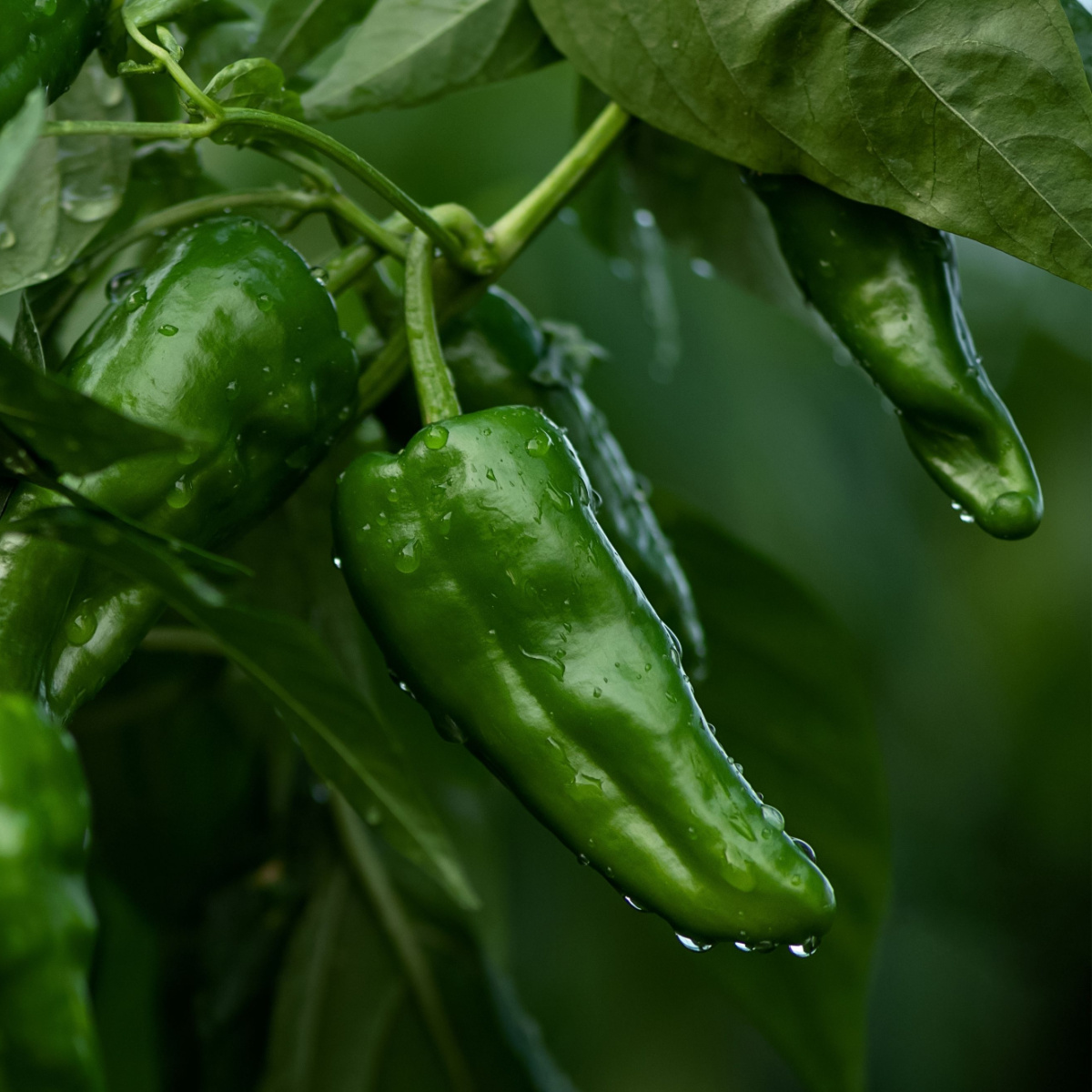Uncover the Best Fertilizers for Peppers: Necessary Nutrients for Growing Plants
Uncover the Best Fertilizers for Peppers: Necessary Nutrients for Growing Plants
Blog Article
Organic Vs. Synthetic Fertilizers: Which Is Best for Nurturing Healthy Pepper Plants?
In the realm of nurturing healthy pepper plants, the selection in between synthetic and organic fertilizers stands as a critical decision with significant implications. While both choices objective to supply necessary nutrients to sustain plant development, the nuances of their influence on the soil, plant health and wellness, and the setting stimulate an argument that mirrors throughout the gardening neighborhood. Recognizing the distinctive advantages and potential pitfalls of each fertilizer kind is important for pepper growers looking for to enhance their yields while maintaining a lasting and eco-conscious approach.
Advantages of Organic Plant Foods
Organic fertilizers supply a sustainable and environmentally-friendly technique to nourishing pepper plants, providing crucial nutrients without using artificial chemicals. These natural fertilizers are stemmed from natural resources such as garden compost, manure, bone dish, and seaweed, promoting soil wellness and biodiversity. Unlike artificial plant foods, organic options release nutrients gradually, guaranteeing a balanced and steady supply for pepper plants to thrive.
One substantial benefit of organic plant foods is their capability to improve soil framework and water retention. By boosting dirt health and wellness, organic fertilizers promote beneficial microbial task, which aids in nutrient uptake by pepper plants. In addition, organic plant foods decrease the risk of chemical run-off, shielding water sources from pollution and guarding the environment.
In addition, natural plant foods add to long-term dirt fertility by promoting the growth of advantageous soil organisms. These microorganisms aid break down organic issue, releasing nutrients in a type that is conveniently obtainable to pepper plants. best fertilizers for peppers. By cultivating a healthy and balanced dirt ecosystem, natural plant foods sustain lasting pepper growing methods that benefit both plants and the environment
Disadvantages of Synthetic Fertilizers
Synthetic plant foods, as opposed to their natural counterparts, present different downsides when made use of to nurture pepper plants, impacting both plant health and wellness and environmental sustainability. One major downside of artificial plant foods is their tendency to seep nutrients from the dirt swiftly. This rapid leaching can cause nutrient imbalances in the dirt, creating plants to experience toxicities or shortages. In addition, artificial fertilizers can hurt helpful dirt organisms, such as earthworms and useful germs, disrupting the soil community's balance.
Additionally, the overuse of synthetic plant foods can add to water air pollution. Excess plant foods not absorbed by plants can get rid of right into water bodies, causing eutrophication, where algae blossoms deplete oxygen degrees in the water, harming marine life. Additionally, synthetic plant foods are normally derived from non-renewable sources, such as fossil fuels, adding to carbon discharges and ecological deterioration during their manufacturing.
Nutrient Absorption Contrast
When contrasting natural and synthetic fertilizers in terms of nutrient absorption, organic fertilizers have the advantage of supplying a more well balanced and slow-release resource of nutrients. Organic plant foods include a variety of macro and micronutrients that are not just useful for the plants yet also advertise healthy and balanced soil microbial task, which helps in nutrient uptake.
Furthermore, natural plant foods boost dirt framework and water retention ability, permitting pepper plants to accessibility nutrients more effectively. This improved dirt top quality promotes origin advancement, allowing much better nutrient absorption. Synthetic fertilizers, although initially increasing plant growth due to their high nutrient concentrations, may prevent lasting nutrient absorption by derogatory soil health and wellness in time.
Ecological Effect Factors To Consider

On the other hand, artificial plant foods, although typically even More hints more focused and promptly offered to plants, can have detrimental impacts on the environment if not used correctly (best fertilizers for peppers). Their manufacturing calls for high energy inputs, resulting in greenhouse gas emissions and contributing to climate change. The drainage of excess synthetic fertilizers can contaminate water sources, leading to eutrophication and damaging aquatic environments.
Best Plant Food Practices for Peppers
When fertilizing pepper plants, maximizing nutrient uptake and decreasing ecological effect are crucial factors to consider. To attain this, it is vital to adhere to best plant food practices customized to the specific demands of pepper plants. One vital method is to perform a dirt test prior to applying any kind of fertilizers. This examination can identify the pH degree of the soil and identify any kind of nutrient deficiencies, assisting you in choosing the most suitable plant food solution.
An additional important practice is to feed pepper plants at the best time. Normally, peppers take advantage of getting fertilizer at planting and after that once more when they begin to flower. Over-fertilizing can anchor result in nutrition imbalances and harm the plants, so it is vital to adhere to advised application rates.
Furthermore, choosing a well balanced fertilizer with an NPK proportion that suits pepper plants' demands is essential. Eventually, integrating artificial and natural fertilizers carefully can aid support healthy pepper plants while minimizing ecological effect.
Conclusion

Organic plant foods supply a lasting and environmentally-friendly technique to beneficial pepper plants, supplying necessary nutrients without the usage of synthetic chemicals. Unlike synthetic fertilizers, organic alternatives launch nutrients gradually, making sure a consistent and well balanced supply for pepper plants to prosper.
Synthetic fertilizers, in comparison to their natural equivalents, position different drawbacks when made use of to nourish pepper plants, affecting both plant health and wellness and ecological sustainability. When comparing organic and artificial fertilizers in terms of nutrient absorption, organic plant foods have find more information the advantage of offering a much more well balanced and slow-release source of nutrients.Moreover, natural fertilizers boost soil structure and water retention ability, permitting pepper plants to gain access to nutrients more effectively.
Report this page